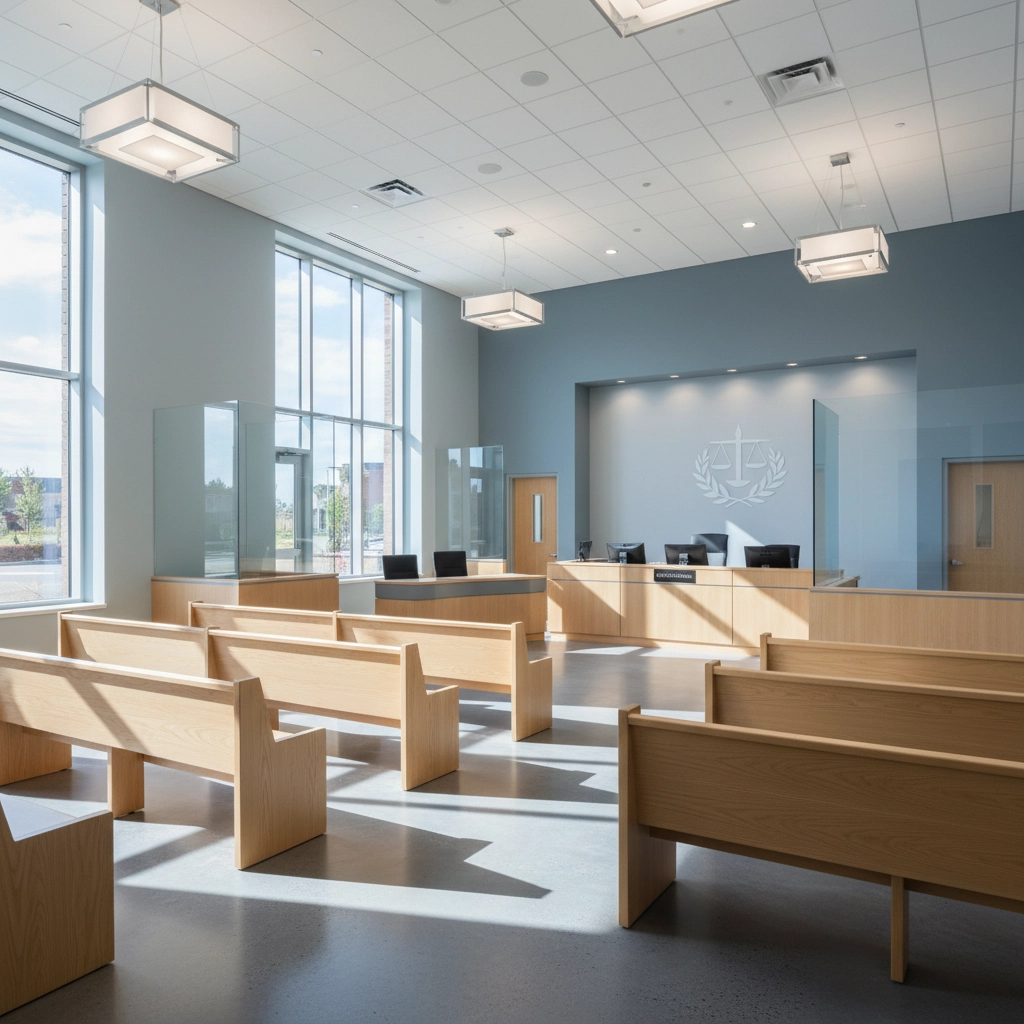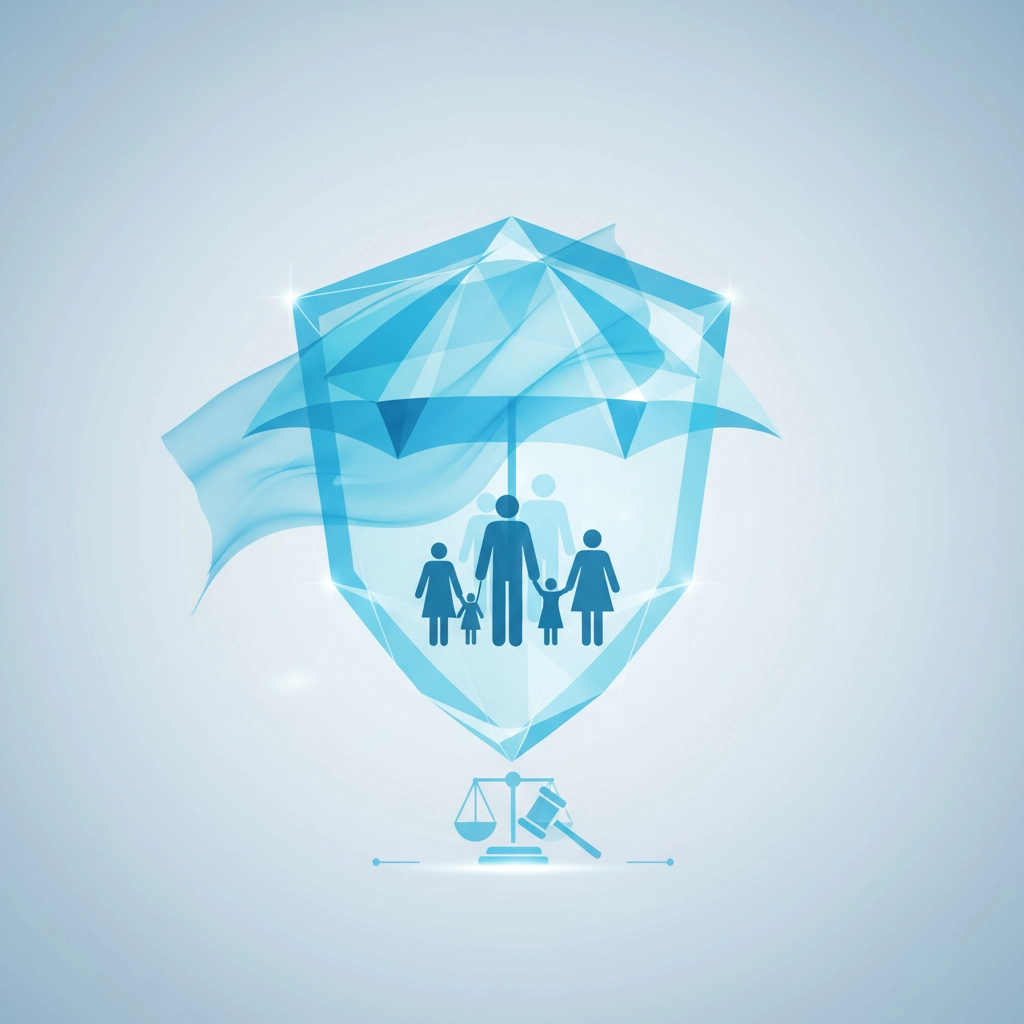Can Biological Parents Regain Custody? Your Complete Guide to Virginia's New Rights Restoration Laws
- brookthibault
- Nov 4, 2025
- 5 min read
Virginia's family law landscape changed dramatically in 2025, offering new hope for biological parents who lost custody of their children. For the first time, the Commonwealth now allows restoration of parental rights under specific circumstances: a groundbreaking shift that could reunite families while prioritizing children's safety and well-being.
If you're a biological parent wondering whether you can regain custody of your child, this guide will walk you through Virginia's new rights restoration laws, the requirements you'll need to meet, and the process you'll navigate.
What Changed in Virginia's 2025 Laws
The new legislation, which took effect on July 1, 2025, represents a fundamental change in how Virginia approaches terminated parental rights. Previously, once your parental rights were terminated, that decision was permanent with virtually no path back to your child.
Now, under very specific and limited circumstances, biological parents whose rights were previously terminated can potentially regain custody. However, this isn't a simple "second chance" law: it includes strict safeguards designed to protect children's best interests above all else.

The law recognizes that family circumstances can change dramatically over time. A parent who struggled with addiction, mental health issues, or other challenges years ago may have successfully addressed those problems and become capable of providing a safe, stable home.
When You Can Seek Rights Restoration
Virginia's new law doesn't provide blanket restoration rights. Instead, it creates a narrow pathway that requires meeting several specific conditions simultaneously:
The adoptive situation must have changed: Your child's adoptive parent must have either passed away or voluntarily surrendered custody. This law doesn't allow you to challenge stable adoptive placements.
You maintained a positive relationship: You must have kept a continuous, positive relationship with your child since your rights were terminated. This means consistent contact that benefited your child's emotional well-being.
You honored post-adoption agreements: If you signed any written post-adoption contact or communication agreements, you must have fully complied with every term and condition.
Everyone consents: All relevant parties: including your child when they're old enough: must agree to the restoration. This isn't a process you can force on an unwilling child or other parties.
These requirements work together to ensure that restoration only happens when it truly serves your child's best interests and when you've demonstrated consistent commitment to their well-being.
Understanding the Age-Based Requirements
Virginia's new law creates different pathways depending on your child's age, recognizing that older children should have more say in decisions affecting their lives.
For Children 14 and Older
If your child is at least 14 years old and remains in the custody of the Department of Social Services without an approved pre-adoptive parent, either social services or your child's guardian ad litem can file a motion for restoration on your behalf.

Several additional conditions must be met:
Both you and your child must consent to the restoration
Your child must have been previously deemed abused, neglected, delinquent, or in need of supervision
Your child hasn't achieved permanency or cannot maintain it if they did achieve it
At least two years must have passed since your parental rights were terminated
There's one important exception to the two-year waiting period: if your child will turn 18 before the two years are up, a court may accept a petition earlier if they determine restoration serves your child's best interests.
For Children Under 14
For younger children, local social services working with your child's current legal guardian can petition the court for restoration of your parental rights. The specific requirements differ from those for older children, reflecting the need for additional protection for younger, more vulnerable children.
The Two-Hearing Restoration Process
Virginia requires courts to conduct a thorough two-stage evaluation before permanently restoring parental rights. This process ensures that restoration truly serves your child's best interests and that you're genuinely prepared to resume parenting responsibilities.
First Hearing: Demonstrating Your Readiness
At the initial hearing, you must present clear evidence that you're now capable of caring for your child. The court will evaluate whether you've addressed the issues that originally led to the termination of your rights.
If the court finds substantial evidence that restoration could benefit your child, they may grant temporary restoration of your parental rights. This temporary period serves as a supervised trial run, typically involving oversight from local social services.

Second Hearing: Making It Permanent
Approximately six months after the first hearing, the court holds a second hearing to determine whether to make the restoration permanent. During this evaluation, the court considers several critical factors:
If the evidence demonstrates that you're both willing and capable of providing appropriate care, the court should grant permanent restoration of your parental rights.
Critical New Protections
Virginia's 2025 legislation includes crucial protections that prevent individuals from obtaining parental rights if they conceived the child through rape, incest, or carnal knowledge. This applies whether or not there's been a criminal conviction: civil courts can enforce this restriction based on clear and convincing evidence alone.
This protection ensures that survivors of sexual violence cannot be forced into co-parenting arrangements with their attackers, prioritizing safety and trauma-informed approaches to family law.
Important Limitations and Considerations
Understanding what this new law doesn't do is just as important as knowing what it allows:
You cannot petition directly: Unlike many legal proceedings, you cannot file for restoration of your own parental rights. Someone else with a legitimate interest must file on your behalf: typically social services, a guardian ad litem, or your child's current guardian.
Restoration doesn't equal immediate custody: Even if your parental rights are restored, you may still need to file a separate child custody petition to gain physical custody of your child.
Each case is unique: These laws are intentionally strict and case-specific. What works for one family may not apply to another, making professional legal guidance essential.

Taking the Next Steps
If you believe you might qualify for rights restoration under Virginia's new laws, consider these actionable steps:
Document your progress: Gather evidence showing how you've addressed the issues that originally led to termination. This might include completion certificates from treatment programs, stable employment records, or character references.
Maintain positive contact: Continue building and maintaining a healthy relationship with your child, respecting any existing agreements or court orders.
Consult with a family law attorney: These laws are complex and highly case-specific. A Virginia Beach child custody lawyer can evaluate your specific situation and help you understand your options.
Prepare for the emotional journey: Rights restoration can be emotionally intense for everyone involved. Consider counseling or support groups to help you navigate this process.
Moving Forward with Hope and Realism
Virginia's new rights restoration laws represent a significant shift toward recognizing that people can change and that family reunification sometimes serves children's best interests. However, these laws maintain strict safeguards to ensure that restoration only occurs when it truly benefits the child involved.
The process requires patience, documentation of your growth and stability, and often professional legal guidance to navigate successfully. While not every situation will qualify for rights restoration, these new laws offer hope for families who have worked hard to address past challenges and demonstrate their commitment to their children's well-being.
Remember that this legal process prioritizes your child's best interests above all other considerations. Courts will carefully scrutinize whether restoration serves your child's safety, stability, and long-term well-being. If you can demonstrate that restoration meets these standards, Virginia's new laws may provide the pathway back to your child that you've been seeking.


Comments